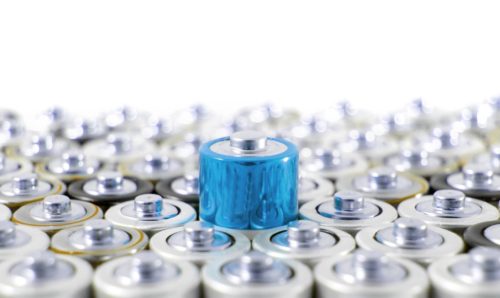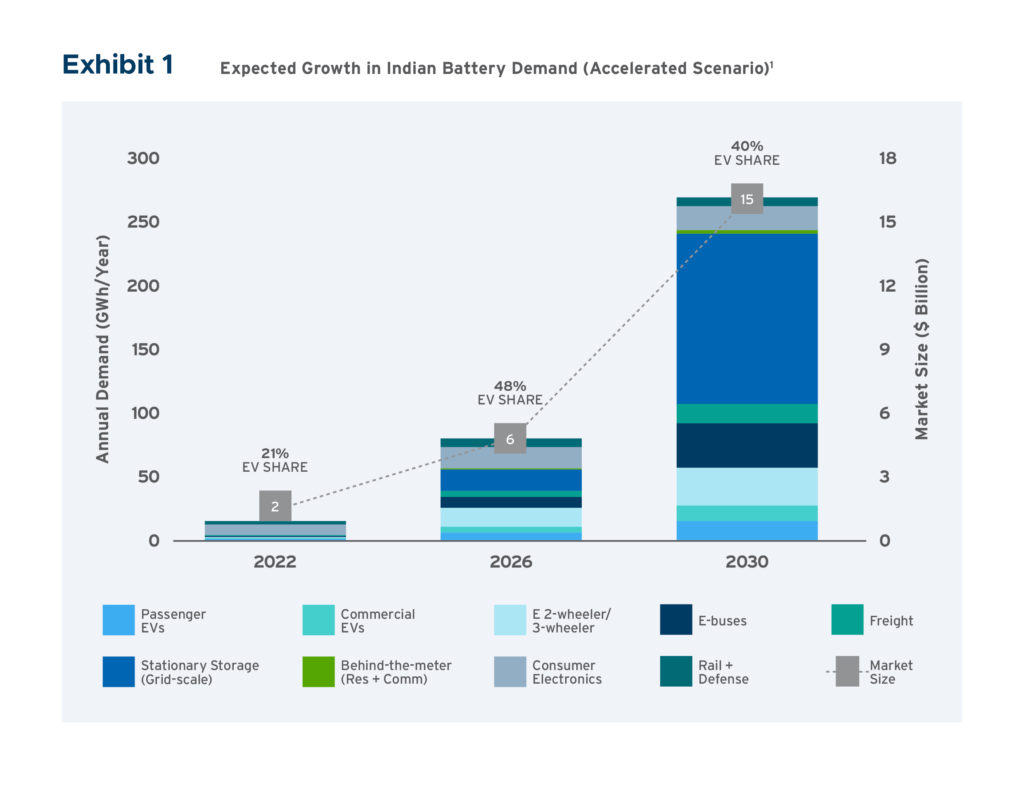
Report | 2022
The Need for Advanced Chemistry Energy Storage Cells in India
Part I of III
India has outlined an ambitious target of 500 GW of non-fossil fuel-based energy generation in India by 2030 and to reduce the total projected carbon emissions by 1 billion tons by same period. To attain these targets, India needs a significant amount of grid storage and a large increase in the number of electric vehicles (EVs).
This report maps the requirement for energy storage across key sectors and projects the demand for batteries in India to 2030. The report foresees a cumulative demand between 106 GWh to 260 GWh for batteries depending on the pace of EV adoption and grid decarbonization. While mobility is the primary driver of demand growth, energy storage is expected to see significant uptake for grid support applications to enable a resilient power sector and facilitate the integration of increasingly higher shares of variable renewable energy.
This report is the first of a three-report series designed to create a shared understanding among stakeholders of current status and future trends that are emerging in the advanced chemistry cells (ACC) battery sector and to build awareness of India’s supportive programs on ACC battery storage, most importantly the Productive Linked Incentives (PLI) scheme for battery cell manufacturing.
This assessment informs the opportunity and criticality for India’s emergence as a major global hub for advanced cells manufacturing. Sizing the storage market can enable stakeholders – policymakers and industry, to strategically plan investments in domestic manufacturing and associated supply chain for ACC energy storage in India. Capturing a lion’s share of the value proposition of energy storage locally can reduce reliance on imports of cells and make India a global leader in battery manufacturing. The positive market outlook and investment opportunity must be complemented with stable, long-term policies by the government at all stages of the value chain to drive demand and create a sustainable, circular industry.
